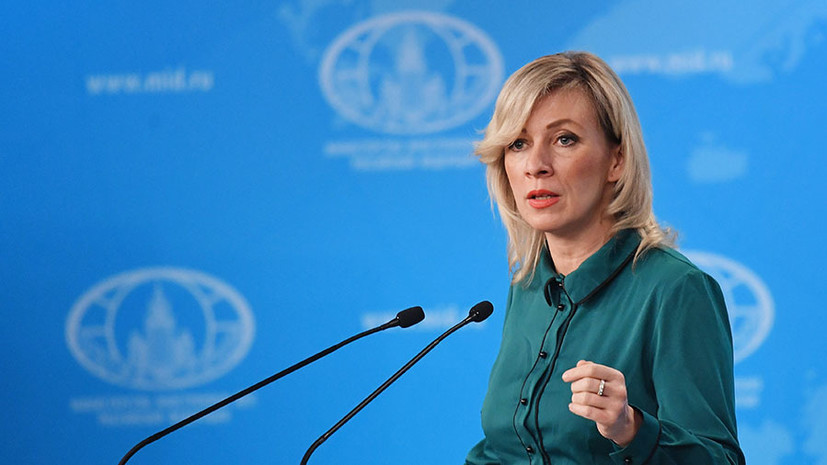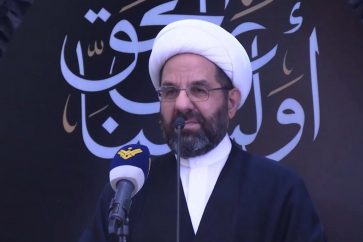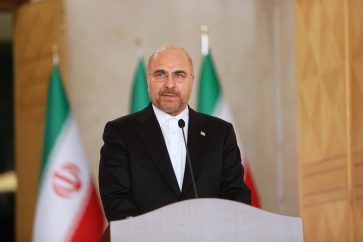Moscow has warned that plans by the United States and Britain to deploy ground-based short and intermediate-range missiles in the Indo-Pacific region are making the prevention of “serious escalation” difficult.
In a statement on Monday, Russian Foreign Ministry spokeswoman Maria Zakharova said the military buildup by the two countries is “gaining momentum,” which only risks further escalation.
She also did not rule out the use of military measures by Moscow in response to missile threats from the West, in particular the United States and Britain.
In recent statements, the Pentagon spoke about plans to deploy missiles previously banned under the Intermediate‑Range Nuclear Forces Treaty (INF). The UK military, the Russian official said, is also “joining the overtly hostile and destabilizing statements and actions.”
“The implementation of such military programs is gaining momentum, which obviously leads to a narrowing of the space for a political and diplomatic solution to the post-INF problem and for preventing a serious escalation in the rocket sphere.”
These developments, Zakharova said, are taking place with the absence of clear signs from the administration of US President Joe Biden and from the majority of Washington’s allies in NATO.
It is the second time in one month that the Russian Foreign Ministry has warned the deployment of US intermediate-range missiles in the Asia-Pacific region may “trigger a brand new arms race and potential standoff with unpredictable consequences.”
Pertinently, Washington in 2019 withdrew from the INF and went on to test a new generation of ground-based medium-range ballistic and cruise missiles – to many observers an apparent provocation.
In response, Russian President Vladimir Putin had vowed that Moscow would take retaliatory measures against the missile deployment in the region.
“We, unfortunately, have new threats. For example, the intentions and statements of our American partners about the possibility of deploying intermediate-range and shorter-range missiles in the Asia-Pacific region are alarming,” Putin said the same year. “Without any doubt, we will have to take something in response. This is an absolutely obvious fact.”
Recent media reports have suggested that the US Defense Department is looking to strengthen its Indo-Pacific presence by deploying a range of ground-based missiles at military facilities in the region.
Last month, the UK government also announced plans to expand its nuclear arsenal. By 2030, the number of its warheads is going to reach 260 from 180. Britain maintains that a smaller deployment is “no longer possible” due to “developing range of technological and doctrinal threats.”
Writing in the Global Times, Beijing-based military analyst Wei Dongxu said the decision could be a result of London’s “consultation with the US as the UK does not have independent research and manufacturing systems for nuclear weapons.”
“The ballistic missiles equipped on UK’s strategic nuclear submarines are actually US-produced Trident missiles. The nuclear warheads are also provided by the US. Therefore, the US and the UK may simultaneously upgrade their nuclear warheads and even research and develop the next generation of submarine-launched ballistic missiles together.”
He further noted that if Russia “responds with a tit-for-tat approach”, it would imperil relations between Europe and Russia.
“From this perspective, UK’s plan to increase its arsenal of nuclear warheads can be seen as a test. It may generate more distrust, misunderstandings, or even doubt between Europe and Russia on issues such as arms control and nuclear weapons. It is clear that the UK is aimed at a new cold war,” Dongxu added.
The INF Treaty, signed in 1987 by then Soviet leader Mikhail Gorbachev and then US President Ronald Reagan, banned the development, construction or deployment of ground-based missiles in the 500km to 5,500km range.
In 2019, former US President Donald Trump pulled the US out of it, leaving just the New Strategic Arms Reduction Treaty between the two sides.
Relations between the two countries have hit a new low under the new US administration, after Biden referred to his Russian counterpart as a “killer” in a televised interview and turned down his offer for direct talks.
Source: Sputnik




